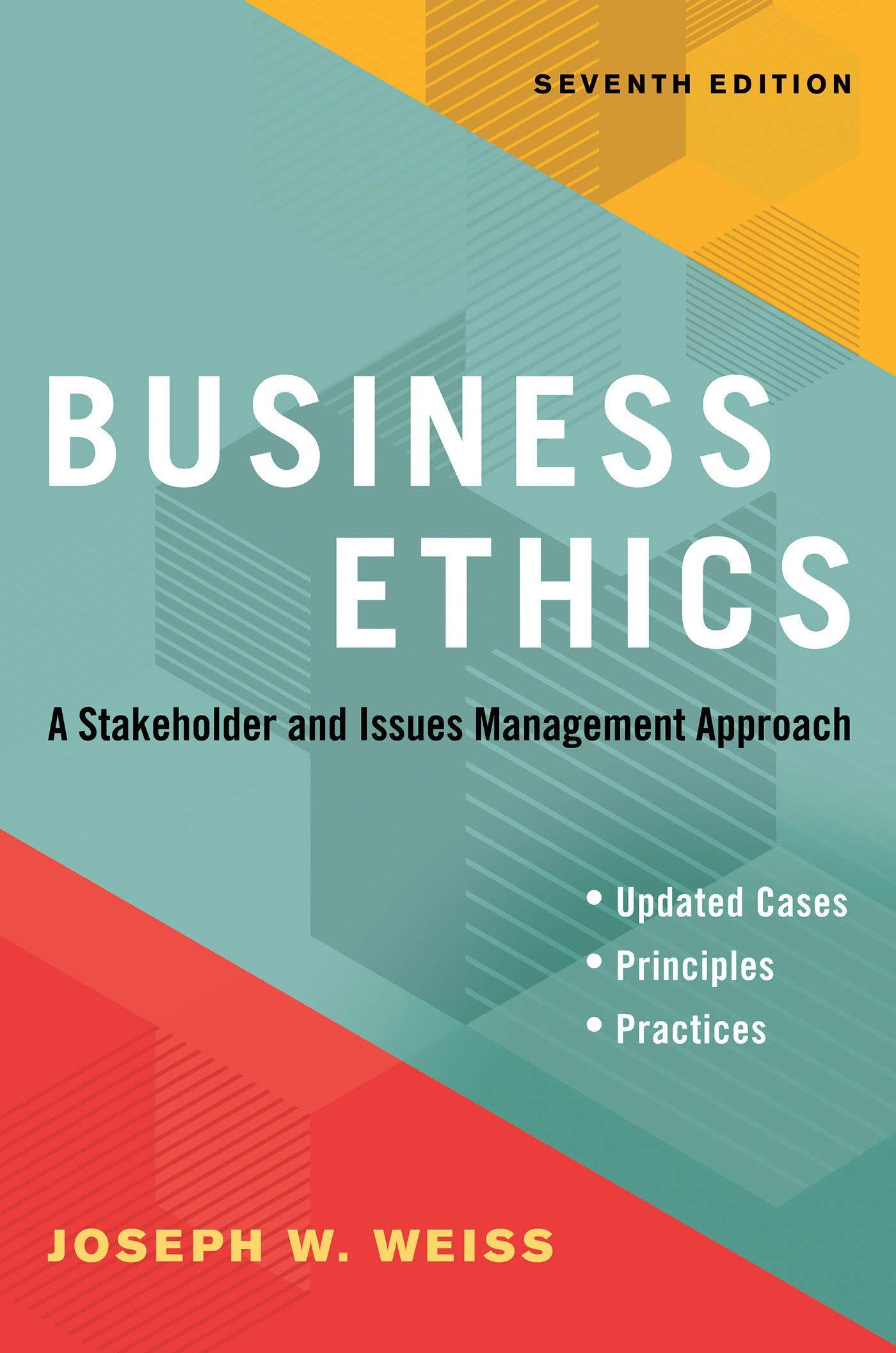Question
Upper Peninsula Power Co. v. Vill. of L'Anse], 2020 Mich. App. LEXIS 7584 FACTS: Upper Peninsula Power Company (UPPCO), the plaintiff, provided electric power to
Upper Peninsula Power Co. v. Vill. of L'Anse], 2020 Mich. App. LEXIS 7584
FACTS: Upper Peninsula Power Company (UPPCO), the plaintiff, provided electric power to customers in Michigan's Upper Peninsula, specifically the Village of L' Anse (defendants) who had annexed part of its industrial park from the surrounding township.
UPPCO had the franchised rights from the early 1900's and had recently contracted for another 30 years in 1988. The Village attempted to change companies and set up a meeting of townspeople to see who might be interested in switching to "Village" electric, serviced by Penokie Electrict. It sent a letter asking citizens to not mention the switch to the defendant company.
At the meeting, citizens were presented with information on how to save money on electricity by switching. The Village continued to pursue the change for citizens within the area at the protest of the defendant.
Before the defendant's franchise expired, equipment of the defendant's was removed and replaced with Penokie energy's equipment, the company some citizens looked to change to (1).
Defendant filed suit alleging several causes of actions - specifically:
Violation of Michigan Antitrust Reform Act - unfair competition. The common law doctrine of unfair competition is limited to acts of fraud, bad faith representation, misappropriation, or product confusion that leads to "unfair competition" in the marketplace (1). The ACT prohibits contracts, combinations and conspiracies in restraint of trade or commerce; prohibits monopolies and attempts to monopolize trade or commerce...(2) TRIAL COURT: The plaintiff moved for summary judgment, meaning, "there are no triable issues of act and no was the case would win a court of law" (3). In other words, the facts speak for themselves and the plaintiff is entitled to relief without having to go through trial.
WHY?
The plaintiff argued in a motion hearing to the judge that the Village could not deny a franchise right to the company. The trial court provided that a franchise is a contract between he parties and there is no "continuing duty" for the parties to enter into a new franchise agreement once the existing contract had expired and, even before it had expired. "Parties are free to contract willingly...and there is no requirement to sign with the same company to provide continued services to customers.
The plaintiff also argued that the communications between the Village administration to the customers of the Village was in violation of anti-trust law. "The defendant's communication to citizens was false and deceiving and, sought to "eliminate competition and impugned the reputation of the plaintiff and cost it competitiveness" (1).
The trail court noted that deception was not present and no evidence presented that communication was "false, deceiving" or eliminated competition, and it was not a violation of Michigan antitrust law to "communicate another direction to provide service to the citizens and customers of the Village."
Appellate Court: Affirmed the decision of the trial court.
After the franchise agreement expired, the utility company had no legitimate claim or entitlement to provide services and the Village no requirement to contract with the plaintiff. Communications for competition for electrical services are the reasons we have antitrust laws.
SOURCES:
(1). Upper Peninsula Power Co. v. Vill. of L'Anse, 2020 Mich. App. LEXIS 7584, 2020 WL 6683062 (Court of Appeals of Michigan November 12, 2020, Decided). Retrieved on February 20, 2023 from https://advance-lexis-com.libdatab.strayer.edu/api/document?collection=cases&id=urn:contentItem:618R-2PT1-FJTD-G0W4-00000-00&context=1516831.
(2). Michigan Legislature, Section 274. Retrieved on October 17, 2022. Michigan Anti-Trust Act of 1984. Retrieved on February 20, 2023 from http://www.legislature.mi.gov/(S(bdwcfkrov2bhi545h2b0fxre))/documents/mcl/pdf/mcl-act-274-of-1984.pdf.
(3). Summary Judgment, definition. Legal Information Institute, Cornell Law School. Retrieved on October 17, 2022. Retrieved on February 20, 2023 from Summary Judgment | Wex | US Law | LII / Legal Information Institute (cornell.edu)
In today's economy, there are powerful companies who in all appearances control massive segments of different markets. Using the NEXIS-Uni Legal Database or the FTC website below, research and provide one company and case in the last five years that has been sued for anti-competitive behavior. Explain why the activity is anti-competitive and whether it is a horizontal restraint of trade or a vertical restraint of trade. Explain
Step by Step Solution
There are 3 Steps involved in it
Step: 1
One example of a company sued for anticompetitive behavior in recent years is Google LLC which has f...
Get Instant Access to Expert-Tailored Solutions
See step-by-step solutions with expert insights and AI powered tools for academic success
Step: 2

Step: 3

Ace Your Homework with AI
Get the answers you need in no time with our AI-driven, step-by-step assistance
Get Started


